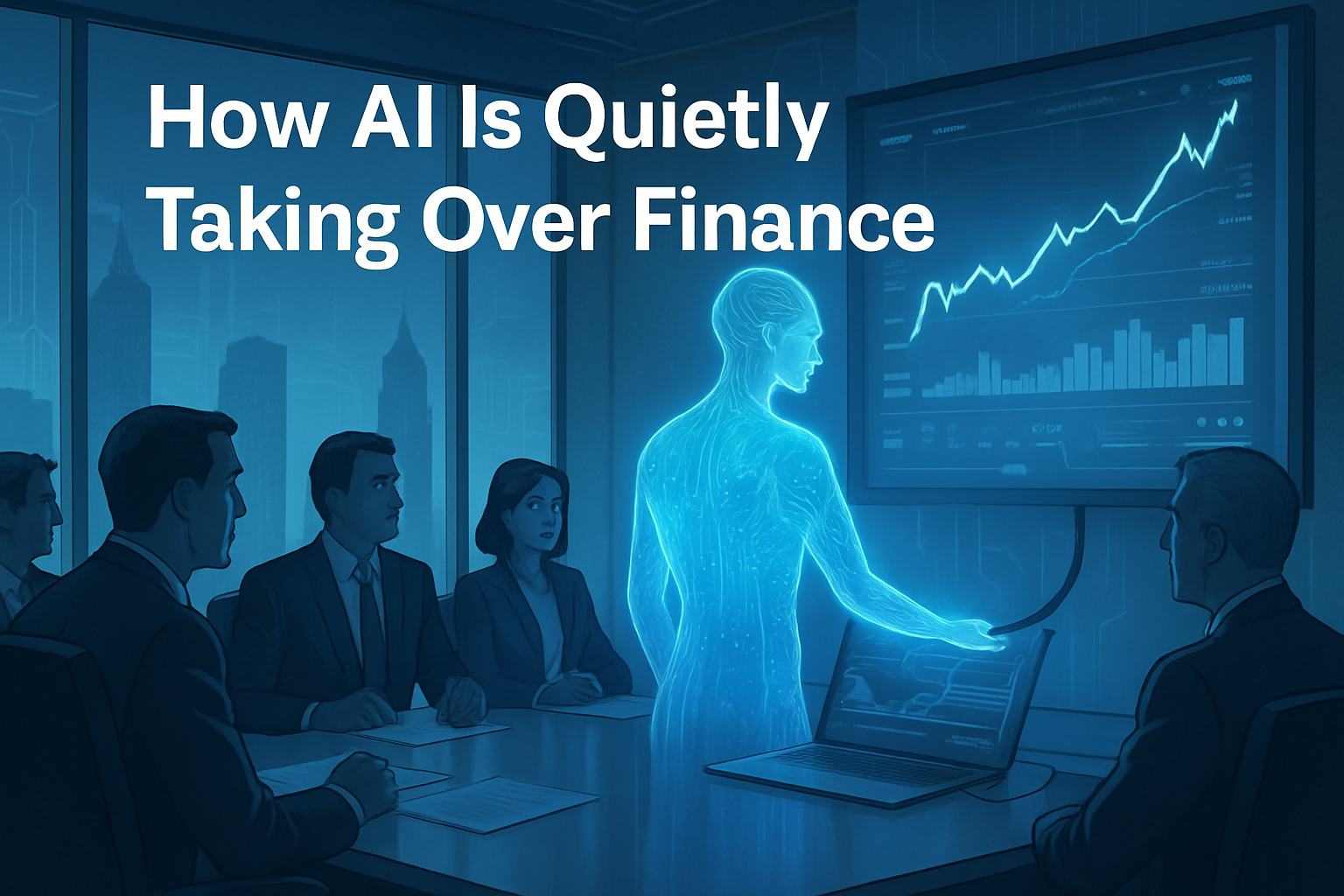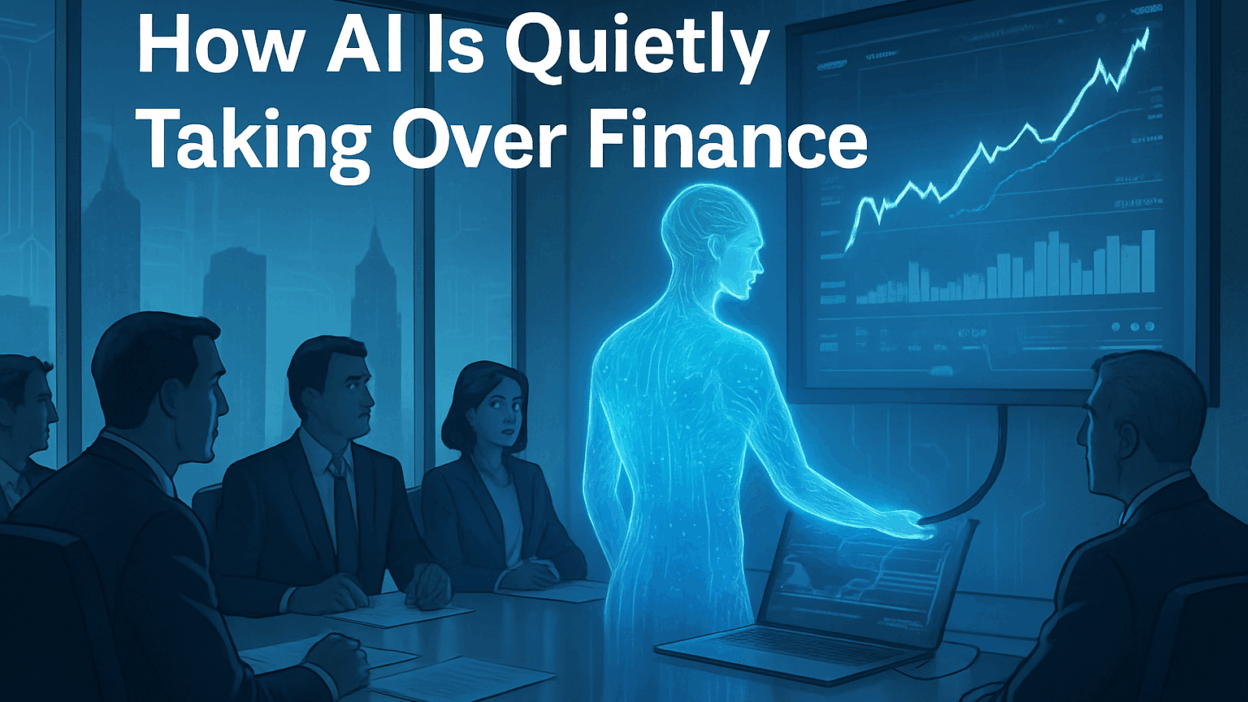
“Someone help me keep track of all these tech innovations in finance.”
If this has been running through your mind lately, you are not alone.
From Quantum Computing to Semiconductors, Spacetech, AI and Fintech, Tech is officially the new global frontier.
Just like the arms race, global powerhouses are scrambling to consolidate economic and political power now, to control the future.
And brands? Let’s just say their survival is pegged on early adoption.
Wondering what we are talking about? Let’s take a deep dive!
The Biggest AI Fintech News in 2025
The Custom GPT Age and Early Adoptors
First came the internet, then the iPhone smartphone revolution, shortly after, cloud computing, blockchain, and finally, generative AI in 2022.
The next significant moment in tech history occurred when OpenAI released its custom GPT feature in 2023.
By spearheading the AI Agent age, OpenAI put the power of AI in the hands of the everyday professional from finance managers to small business owners.
This enables them to build intelligent, task-specific assistants without writing a single line of code.
Brex was among the early adopters alongside other players like Morgan Stanley and Stripe.
In their recent summer release 2025, Brex announced AI upgrades that now automates the entire workflow of the accounting process.
Ramp Secures Funding to Invest in AI Driven Finance Automation

What would $500 M do for your business? If you are in fintech like Ramp, you probably know by now that it’s either adoption or recession.
Going all out on AI automation investment was a no brainer for them.
Visa the AI King
Way before AI became a thing, Visa Advanced Authorization was supremely reigning. In 1993, Visa pioneered neural network-based AI.
This helps them to analyze the risk of transactions in real time. More recently in 2024, they completed a 75% purchase of the UK’s leading AI developer of real-time payments protection.
JP Morgan Chase AI
While most legacy finance institutions approached the AI revolution with scepticism, JP Morgan moved with the times.
In 2024 they released tools like the LLM Suite and EVEE Intelligent Q&A that enhanced the efficiency of their back office teams in real time knowledge support.
Zoho launches ZIA LLM , ZIA Agents and Studio

Some news worth applauding. The developing world is not being left behind in the AI race.
India just made a last-minute surprise entrance to the AI Agent Royal Rumble, and boy, are we in for some action!
Zoho released custom AI agents creation features alongside its LLM knowledge centre last month (July 2025).
Zohobooks, the AI accounting app on Zoho, can now be integrated to automate invoicing, reconciliation, and expense tracking with NLP.creating a stronger emotional connection with the content.
Why Now? Reason Why AI Is Disrupting Finance
As companies trim overhead costs to save margins, most professionals are required to do significantly more while maintaining efficiency on a fast turn around time.
However these are they key factors native to finance:
- Data Overload – Finance generates massive data that AI is uniquely positioned to analyze in real time.
- Pressure on CFOs – More demand for forecasting accuracy, faster closing cycles, and strategic insights.
- Labor Efficiency – AI is slashing time spent on manual accounting, reconciliation, and reporting.
- Rise of AI Copilots – Embedding LLMs (like GPT-4o) into finance platforms is revolutionizing workflows.
What’s all the fuss about AI in Finance technology?
Benefits of AI Integration in Finance
1. Massive Efficiency Gains
Automating repetitive tasks like reconciliations, data entry, and invoice processing frees up teams to focus on strategic work.
AI can reduce closing cycles, audit prep time, and even tax compliance processing from weeks to days or hours.
2. Cost Savings
By cutting down manual labor and reducing human error, AI lowers operational costs.
Example: AI-driven fraud detection minimizes financial loss from fraud, saving billions annually in global finance.
3. Real-Time Decision-Making
AI systems analyze live data to help CFOs and finance teams make smarter decisions faster, such as forecasting cash flow, monitoring spend, or predicting risk.
Business owners benefit by getting instant insights instead of waiting on monthly reports.
4. Improved Accuracy and Compliance
AI ensures higher data accuracy in areas like payroll, compliance checks, and financial reporting.
Reduces regulatory risk critical for highly regulated industries like finance.
5. Scalability
AI allows startups and growing businesses to scale operations without proportionally increasing staff, especially in financial functions like spend management or accounts payable.
Core Areas AI Is Automating in Finance
1. Expense Management & Spend Visibility
Automated expense categorization e.g.
- Real-time budget vs. actual analysis
- AI-generated variance explanations
2. Accounts Payable (AP) & Receivable (AR)
Invoice scanning & auto-matching (OCR + ML)
Payment approvals with AI-assisted risk checks
Predictive AR: Who will pay late? How much cash will be collected?
3. Forecasting & FP&A
AI-powered rolling forecasts
Cash flow prediction models
Driver-based scenario modeling
4. Fraud Detection & Risk Management
AI algorithms that detect payment fraud patterns, duplicates, anomalies
AI-led audit trails with explainability
Regulatory compliance automation (KYC, AML, SOX)
5. AI Finance Assistants
Chat-based tools that respond to prompts like:
“What’s our Q2 spend vs forecast?”
“Why did software costs spike in May?”
Integrated into platforms like Brex, QuickBooks, Workday
Is there a downside to AI Integration in Finance?
1. Data Privacy Concerns
Financial data, including customer payments, payroll, tax filings, and investor reports is extremely sensitive. Sharing this data with AI systems (especially cloud-based or third-party LLMs) introduces risks around:
Unauthorized access
Data breaches
Regulatory violations
Example: Uploading financial statements into a generative AI tool without data encryption or proper API governance can expose private business information.
2. Model Bias & Black-Box Limitations
Most large language models (LLMs), including finance-focused ones, operate as black boxes, they give outputs without transparency into how decisions were made.
This introduces risks such as:
- Biased recommendations due to skewed training data.
- Inaccurate forecasting or analytics.
- Inconsistent results under similar queries.
Lessons for Finance Professionals and Business Owners
1. Adapt or Fall Behind
AI is becoming a standard part of modern finance. Professionals who understand it will lead; those who ignore it may become obsolete.
2. Upskill in Tech Fluency
Learn how tools like AI-powered forecasting, reconciliation automation, and spend analytics work. This will be a core skill for modern CFOs, accountants, and finance teams.
3. Invest in the Right Tools Early
Don’t wait to adopt tech. Start small with AI-enabled software (e.g., spend tracking, payroll, or accounting platforms with built-in AI).
4. Data is Your Currency
AI thrives on data. Ensure your business maintains clean, organized, and accessible financial data. Businesses with better data quality gain more value from AI integrations.
Final Verdict
AI is to modern finance what spreadsheets were in the 1980s , not a luxury, but a necessity!
AI is reshaping how companies operate at every level of finance from bookkeeping and forecasting to fraud detection and strategic planning.
Finance professionals and business owners who embrace this transformation will gain a clear edge in efficiency, insight, and growth potential.





This article is exactly what I needed! Your insights are incredibly helpful.
I’m happy to hear you find value in my content. Thanks for your continued support!
You’ve changed the way I think about this topic. I appreciate your unique perspective.